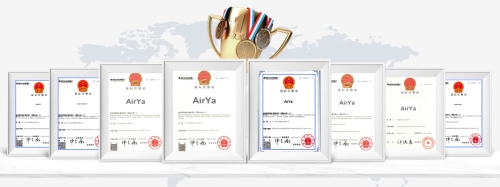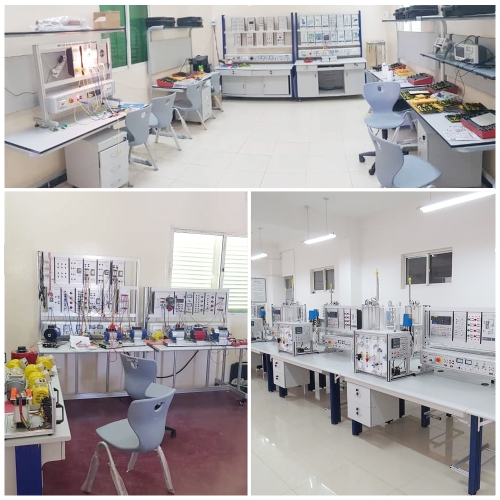F1-29 Fluid Statics And Manometry Didactic Equipment Vocational Training Equipment Fluid Mechanics Lab Equipment
DESCRIPTION
The F1-29 is designed to demonstrate the properties of Newtonian fluids and their behaviour under hydrostatic conditions (fluid at rest). This enables students to develop an understanding and knowledge of a wide range of fundamental principles and techniques, before studying fluids in motion. These include the use of fluids in manometers to measure pressure and pressure differences in gases and liquids.
Some simple exercises are included to show how the behaviour of a fluid changes when flow is involved and the relevance of concepts such as frictional losses.
The apparatus is constructed from PVC and clear acrylic, and consists of a vertical reservoir containing water that is connected to a series of vertical manometer tubes. These tubes can be used individually or in combination for the different demonstrations of hydrostatic principles and manometry. One tube includes changes in cross section to demonstrate that the level of a free surface is not affected by the size or the shape of the tube. The right-hand manometer tube is separate from the other tubes and incorporates a pivot and indexing mechanism at the base that enables this tube to be inclined at fixed angles of 5°, 30°, 60° and 90° (vertical).
The reservoir incorporates a hook and point gauge with Vernier scale, mounted through the lid, that enables large changes in level to be measured with better precision than a simple scale. A vertical transparent piezometer tube through the lid of the reservoir enables the static head above the water in the reservoir to be observed when the air space above the water is not open to atmosphere.
Connections at the top of the reservoir and each of the manometer tubes enables a syringe to be connected using flexible tubing that permits the static pressure of the air to be varied positively or negatively as required for the various demonstrations. The syringe and flexible tubing for filling the equipment etc. are stored at the rear of the apparatus when not in use for convenience.
A small flow can be induced through the interconnecting pipework between the various manometer tubes to provide a simple but clear demonstration of the effect of friction created by the motion of the fluid. This is useful to the student before performing demonstrations using more advanced fluid dynamics accessories.
The equipment is designed to demonstrate the basic principles of hydrostatics and manometry using water for safety and convenience. The use of a safe, soluble food dye in the water makes observation of the level changes clearer without affecting the operation of the apparatus. Alternative liquids, with different densities, can be used in the ‘U’ tube manometer if required to extend the range of the demonstrations.

 TECHNICAL SPECIFICATIONS
TECHNICAL SPECIFICATIONS
Max depth inside reservoir: 574mm
Inside diameter of reservoir: 100mm
Scale length of manometer tubes: 460mm
Manometer tubes incorporated:
1 ‘U’ tube
2 vertical parallel tubes
1 vertical tube with varying cross section
1 vertical tube with pivot enabling operation at three different inclinations
EXPERIMENTAL CONTENT
Demonstrating the behavior of liquids at rest (hydrostatics)
Showing that the free surface of a liquid is horizontal and independent of cross section or inclination of the container
Effect of changes in air pressure above a liquid surface
Measuring the level of a liquid using basic measuring techniques such as a scale, vernier depth gauge and inclined scale and the effect of parallax
Measuring small changes in liquid level using a micro-manometer
Measuring changes in liquid level using a Vernier hook and point gauge
Using a single limb manometer / piezometer tube to measure head
Using manometer tubes to measure differential pressure
Using an inclined manometer to measure small pressure differences
Using a ‘U’ tube manometer to measure pressure differences in a gas (air over liquid)
Using an inverted pressurised ‘U’ tube manometer to measure pressure differences in a liquid
Enlarged limb manometer
Using liquids with different densities to change the sensitivity of a ‘U’ tube manometer
Demonstrating the effect of trapped air on the accuracy of a manometer
Demonstrating the effects caused by friction when a fluid is in motion

